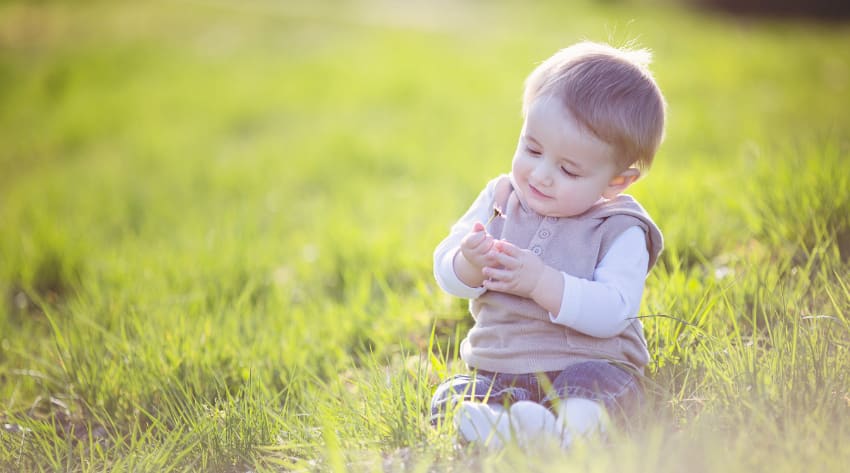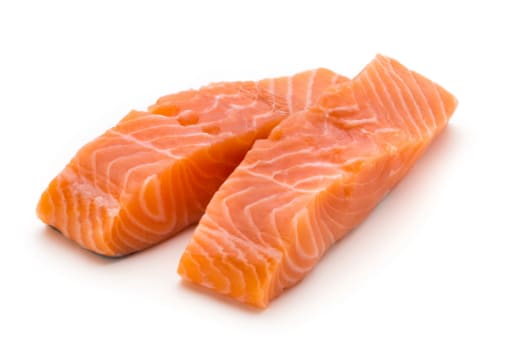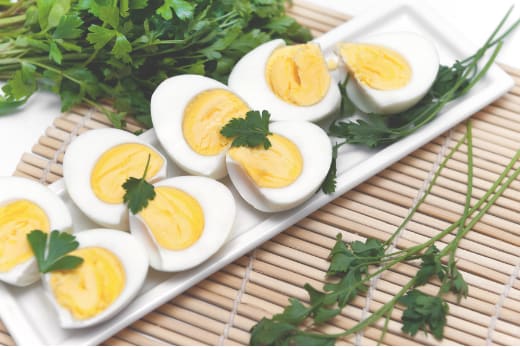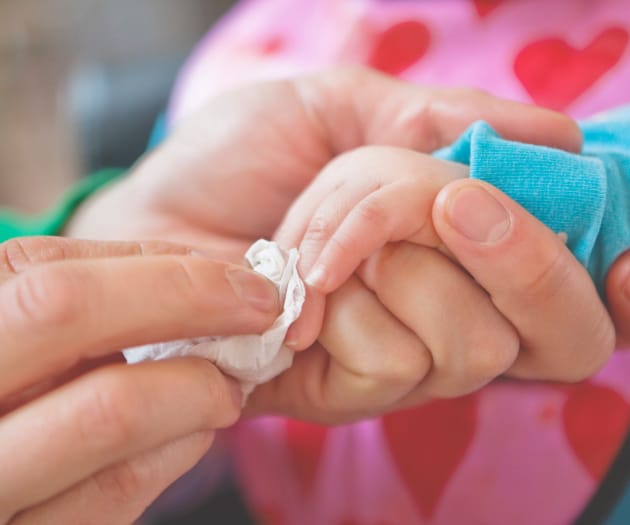Introduction
When your baby arrives, it can feel overwhelming making sure you’re giving them all the nutrition they need for healthy growth and development. Breast milk contains all the necessary nutrients your baby needs; nonetheless, it does not provide infants with enough vitamin D. This article explores everything you need to know about your baby’s vitamin D needs.
What is vitamin D?
Vitamin D is unlike most other vitamins. It’s a fat-soluble vitamin (meaning it can be stored in the body), however it acts like a hormone which is produced when your skin is exposed to the sun.1 For this reason, vitamin D has earned the nickname the ‘sunshine vitamin’.
Why do babies need vitamin D?
Our bodies need vitamin D as it teams up with other important minerals (calcium and phosphate) to help keep teeth, bones and muscles healthy.2 This is particularly important for babies as they experience rapid weight gain and growth during their first year of life.3
If babies and young children don’t get enough vitamin D, they might have poor growth, develop joint pains and are at risk of a bone disease called rickets, which can lead to osteomalacia in adults.1 Research has shown that vitamin D plays a role in the normal functioning of the immune system.4
Is my baby at risk of vitamin D deficiency?
When your baby is born, their vitamin D stores will be similar to their mother’s.5A recent study has highlighted that one in six adults in the UK have vitamin D deficiency (low levels of vitamin D in their blood).6 In the UK, 80–90% of vitamin D is made by skin exposure to sunlight, with the remaining 10–20% coming from foods.1
We can’t rely on the sunshine here in the UK. For this reason, adults (including pregnant women) are advised to take a 10(µg) microgram vitamin D supplement daily between September and March.7 In pregnant women, this helps to boost their own vitamin D levels to help lay down stores for their baby.
How much vitamin D does my baby need?
To maintain healthy levels of vitamin D throughout the year, the UK government recommends that babies from birth to one year of age should take a daily supplement containing 8.5 to 10(µg) micrograms of vitamin D throughout the year if they’re:8
-
exclusively breastfed
-
formula-fed and are having less than 500ml (about a pint) of infant formula a day, as infant formula is already fortified with vitamin D
Children aged one to four years old should be given a daily supplement containing 10(µg) micrograms of vitamin D throughout the year.8
In Ireland, the Health Service Executive (HSE) recommends that babies are given 5(µg) micrograms of vitamin D as a supplement every day from birth to 12 months if they’re:9
-
breastfed
-
taking less than 300mls or 10 fluid oz (ounces) of infant formula a day
It’s important to note that some baby’s nutritional needs are higher than others. If you’re concerned, ask your health visitor or GP for advice.
Where can you get baby vitamin D drops?
Baby vitamin D drops don’t need to be prescribed and are available from most pharmacies and large supermarkets. If you’re under 18, or receiving benefits, you may be entitled to free Healthy Start vitamin drops. In some areas, Healthy Start vitamins are free to all families – it’s best to ask your health visitor for advice.
I’m breastfeeding, does my baby still need vitamin D drops?
Exposure to sunlight is our main source of vitamin D. However, babies have sensitive skin and you’ll always be seeking shade, making it difficult to meet vitamin D needs.
Breast milk is a natural source of vitamin D for babies and exclusively breastfed infants rely on their mother’s milk as their source of vitamin D.5 It’s unclear how much vitamin D passes through into breastmilk, with levels often found to be low.10So as a precaution it’s recommended that all breastfed babies from birth to one year of age should be given a daily supplement containing 8.5 to 10 (µg) micrograms of vitamin D.5 In Ireland, the HSE recommends that 5(µg) micrograms of vitamin D is given to exclusively breastfed infants.
As a parent, there’s so much to remember on a daily basis. Try to give vitamin D baby drops at the same time/feed each day or leave the supplement somewhere you visit regularly (e.g., the kettle!). If you forget to give the vitamin D drops for a day or two, don’t worry, just continue with one serving a day, do not use higher doses than recommended.
Which foods are rich in vitamin D?
It’s difficult to get enough vitamin D from our diet alone, however as soon as your baby starts weaning, try to include food which contains vitamin D (see the table below)11.
| Food | Portion size | Vitamin D content (ug)11 |
|---|---|---|
| Salmon (canned) | 140 g | 15.3 |
| Sardines (canned) | 140 g | 4.6 |
| Mackerel (grilled) | 140 g | 11.9 |
| Lamb | 90 g | 0.5 |
| Pork | 90 g | 0.9 |
| Chicken breast (fried) | 100 g | 0.2 |
| Beef mince | 100 g | 0.6 |
| Boiled 1 egg | (50 g) | 1.6 |
| Scrambled 2 eggs | (120 g) | 3.4 |
| Butter | 10 g | 0.1 |
| Spreads | 10 g | 0.8 |
| Breakfast cereal (with added vitamin D) | 30 g | 1.4 |
How do I get vitamin D into my babies weaning diet?
When your baby first starts their weaning journey, most of their food will no doubt end up in their hair or on the floor. It’s difficult to get enough vitamin D from food alone, especially given the small portion sizes your baby will have. That said, you can start to offer vitamin D rich foods in the following ways:
-
Offer omelette fingers or fortified cereals at breakfast
-
Offer tinned salmon or sardines mashed with yoghurt on top of soft vegetable or toast fingers
-
Use fortified spreads in sauces to add some additional nutrients including vitamin D
-
Wild mushrooms are a rich natural source of vitamin d and add great flavour to an omlette
Chicken or beef can be blended well with vegetables and salt-free stock to make tasty first purees.

















